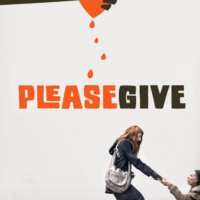This is a blog about arts management and policy. But as someone who has led many students through the basics of international trade, and as your resident Canadian, I'm going to use this space for a few words on the current state of relations across the 49th parallel. As bad as things are in the current tariff dispute, I don't think it's the worst thing happening right now. Targeting vulnerable groups is cruel, and worse. Recent Cabinet appointments are as unqualified as one could possibly imagine (under an administration claiming a … [Read more...]
What is public funding of the arts for?
Some Adam Smith as an appetizer… Consumption is the sole end and purpose of all production; and the interest of the producer ought to be attended to, only so far as it may be necessary for promoting that of the consumer. The maxim is so perfectly self-evident, that it would be absurd to attempt to prove it. Now to the present. Nashville’s WPLN public radio reports on a dispute at the city’s Metro Arts agency: The debate can be summed up like this: should Metro Arts focus its grantmaking on individual artists or arts … [Read more...]
On owning many books
"He [Gabriel Oak] also thought of plans for fetching his few utensils and books from Norcombe. The Young Man’s Best Companion, The Farrier’s Sure Guide, The Veterinary Surgeon, Paradise Lost, The Pilgrim’s Progress, Robinson Crusoe, Ash’s Dictionary, and Walkingame’s Arithmetic, constituted his library; and though a limited series, it was one from which he had acquired more sound information by diligent perusal than many a man of opportunities has done from a furlong of laden shelves." Thomas Hardy, Far from the Madding Crowd … [Read more...]
Even Richard Nixon has got Soul
(January 24, 1970, Richard Nixon in Philadelphia to present the Presidential Medal of Freedom to Eugene Ormandy: AP photo). A few days ago I wrote about a post by Thomas Wolf on public arts support in the US - I focused on what he said about the income tax deduction for charitable donations as an “indirect” arts policy. Not to get all obsessive about his post (most of which is unobjectionable!) there was one more thing that struck me. He wrote: In 1977, the U.S. Congress’s appropriation for the National Endowment for … [Read more...]
On the ingratitude of artists receiving a guaranteed income from a benefactor
(“Vanessa Bell in a Deckchair” by Roger Fry) From Robert Skidelsky, John Maynard Keynes 1883-1946, Economist, Philosopher, Statesman: The autumn of 1925 found Keynes, as usual, complaining of overwork (‘too much to do, no leisure, no peace, too much to think about…’). A substantial commitment was organising the London Artists’ Association, in homage to both art and friendship. The idea was to give the leading Bloomsbury painters and their protégés - a group headed by Duncan Grant, Vanessa Bell and Roger Fry - a guaranteed income, so … [Read more...]
On “indirect” support for the arts
Thomas Wolf has posted a short piece on the history of the National Endowment for the Arts, whether it is likely to survive the coming second Trump administration, and the tax deduction for charitable contributions. I’m going to focus on that last bit… People who itemize their income tax deductions can claim contributions to registered charities. Wolf writes: The U.S. government does play the role of support to many sectors including the arts and it does so at a much higher level than other countries by almost any measure. But … [Read more...]
Art, Politics, Trump
A favourite old book of mine from my childhood is Kenneth Clark’s Civilisation, which goes along with his television series. It is old-school history of western civilisation, observant and wise. In his first chapter he travels to those monasteries around Ireland and Great Britain - Skellig Michael, Iona, Lindisfarne (pictured above) - where in the sixth and seventh centuries monks were able to preserve and to create great works of writing and art, saving them from the Viking invaders. The Vikings possessed great energy and courage, and … [Read more...]
Music and Wellness
Daniel Levitin has a short article in Wired on the future of music, therapy and well-being. I do not like it. Preliminary: Levitin is James McGill Professor Emeritus of Psychology and Neuroscience at McGill University, and the author of many books - I came to know him long ago for his This is Your Brain on Music. In terms of people who are very smart about the science of what is happening with our little grey cells when we listen to a song, he must rank as one of the top. More preliminary: in the article, he … [Read more...]
The fate of the NEA in the coming administration
On NPR this morning is a short piece pondering the fates of the NEA and NEH under the second Trump administration. It is optimistic, though given the Wall Street Journal article by Musk and Ramaswamy this morning (they obviously didn't write it - but it carries their names), which, in looking at things to cut, refers to the federal funding of the Corporation for Public Broadcasting among other agencies, I cannot bring myself to share in the optimism. The reporter gives two reasons that the Endowments might be spared being cut. The first … [Read more...]
A dialogue on the nature of arts participation
When I was a child we had some really old Peanuts paperbacks, now long lost, and for reasons unknown - some spirit knew I would end up in cultural policy? - this one stuck in my head, practically verbatim. Anyway, from April 6, 1958, thank you Mr. Schulz. … [Read more...]










